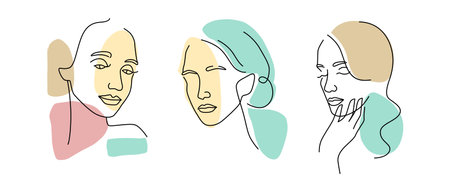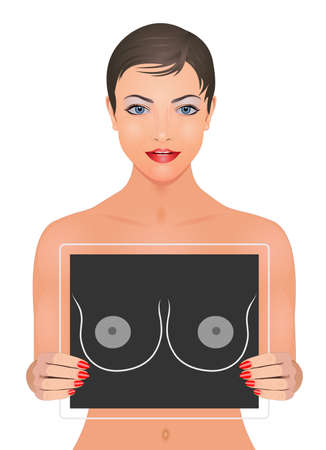Understanding Zero-Waste Beauty in the UK
Zero-waste beauty is gaining momentum across the UK as eco-conscious consumers strive to align their routines with sustainable living. At its heart, zero-waste beauty revolves around three main pillars: conscious consumption, waste reduction, and responsible sourcing. These principles closely echo British environmental values, which emphasise practicality, community well-being, and respect for the natural landscape.
The concept of conscious consumption urges individuals to make mindful choices about what they purchase and use. For Britons, this often means supporting local brands that prioritise ethical practices and transparency. Waste reduction is also central—minimising single-use plastics, opting for recyclable packaging, and embracing refillable products are all part of a movement towards a circular economy. Responsible sourcing ensures that ingredients are ethically harvested, cruelty-free, and preferably grown or manufactured within the UK to reduce carbon footprints.
| Core Principle | How It Resonates in the UK |
|---|---|
| Conscious Consumption | Choosing locally-made, ethical products; supporting homegrown brands |
| Waste Reduction | Preferring plastic-free packaging, reusable containers, and refill stations in shops |
| Responsible Sourcing | Opting for cruelty-free, vegan ingredients sourced within Britain or nearby regions |
By weaving these principles into daily routines, British beauty lovers can actively contribute to both personal wellness and environmental protection. The shift towards zero-waste isn’t just a fleeting trend—it’s a reflection of the UK’s broader commitment to sustainability and thoughtful stewardship of the environment.
2. Switching to Sustainable Packaging and Products
When it comes to achieving a zero-waste beauty routine in the UK, one of the most impactful shifts is opting for products with sustainable packaging. In recent years, a growing number of UK-based brands have emerged, championing eco-friendly alternatives that align perfectly with an eco-conscious lifestyle. From glass jars to aluminium tins and even compostable materials, there’s now a wealth of options readily available across high streets and online platforms.
Why Packaging Matters in Beauty Routines
Traditional beauty products often rely on single-use plastics, which contribute significantly to landfill waste and marine pollution. By making informed choices and supporting brands offering recyclable or refillable packaging, consumers can help reduce their environmental footprint while still enjoying their favourite products.
Popular Sustainable Packaging Alternatives
| Material | Benefits | Common UK Brands |
|---|---|---|
| Glass | 100% recyclable, reusable, non-toxic, preserves product quality | Lush, UpCircle Beauty |
| Aluminium | Infinitely recyclable, lightweight, rust-resistant | Evolve Organic Beauty, Wild Refill Deodorant |
| Compostable Materials | Breaks down naturally, ideal for single-use items like wipes or sachets | Beauty Kitchen, Ethique (via UK retailers) |
The Rise of Packaging-Free Options
A number of pioneering British brands are taking things a step further by offering packaging-free or “naked” products. For instance, Lush’s solid shampoo bars and bath bombs eliminate the need for containers altogether. This not only reduces waste but also simplifies recycling at home. Many local refill shops across the UK now stock loose powders and liquids where you can bring your own containers—making zero-waste beauty both accessible and practical.
How to Shop Smartly in the UK
Look out for symbols such as the Mobius loop (recycling symbol), FSC certification for paper and cardboard, or ‘compostable’ labels on new launches. Local beauty retailers like Holland & Barrett and Boots are expanding their eco-friendly sections, making it easier than ever to find sustainable alternatives nationwide. Ultimately, switching to sustainable packaging is not just a trend—it’s a responsible choice that every UK makeup lover can make to contribute towards a greener future.

3. Embracing Reusable Beauty Tools
The UK’s zero-waste beauty movement is seeing a significant shift away from single-use wipes and disposable cotton pads, as eco-conscious consumers seek more sustainable alternatives. Not only do these throwaway products contribute to landfill waste, but they are often packaged in non-recyclable plastics and can contain chemicals that harm our waterways. For those looking to reduce their environmental footprint while maintaining an effective skincare routine, reusable beauty tools such as muslin cloths and bamboo pads are fast becoming essentials.
Why Make the Switch?
Single-use beauty products offer convenience but at a substantial cost to the environment. Reusable alternatives not only help you cut down on waste but also tend to be gentler on your skin and more economical in the long run. Muslin cloths, for example, provide gentle exfoliation and can be machine washed repeatedly, while bamboo pads are naturally antibacterial and highly absorbent.
Popular Reusable Alternatives in the UK
| Product Type | Material | Main Benefits | Where to Buy in the UK |
|---|---|---|---|
| Muslin Cloths | 100% Cotton or Organic Cotton | Gentle exfoliation, quick drying, ideal for cleansing balms & oils | Boots, Holland & Barrett, Evolve Beauty, The Body Shop |
| Bamboo Pads | Bamboo Fibre Blend | Antibacterial, reusable up to 1,000 washes, soft texture for sensitive skin | Peace With The Wild, Earthwise Girls, Amazon UK, Superdrug |
| Crochet Face Scrubbies | Organic Cotton Yarn | Handmade options, customisable sizes, compostable at end-of-life | Etsy UK, Local Zero-Waste Shops |
Practical Advice for Sourcing and Caring for Reusables
- Local Zero-Waste Shops: Many towns now have refill or zero-waste stores stocking reusable beauty accessories—check directories like Zero Waste Near Me to find one close by.
- Sustainable Brands: Look for reputable UK brands that use organic or certified materials and plastic-free packaging.
- Caring for Your Tools: Wash muslin cloths and bamboo pads at 30–40°C with mild detergent; avoid fabric softener which can affect absorbency. Air dry when possible for longevity.
- End-of-Life Disposal: If your reusable pad is made of 100% natural fibres (like organic cotton), it can be composted at home after its useful life.
A Small Change with Big Impact
Transitioning to reusable beauty tools is a practical step every UK makeup lover can take towards a zero-waste routine. By making conscious choices about what you use daily—and how you care for it—you’ll not only reduce waste but also support local businesses championing sustainability across Britain.
4. DIY Beauty: Home-Made Alternatives
The UK’s zero-waste beauty movement isn’t just about what you buy, but also what you can create at home. Embracing DIY beauty allows eco-conscious makeup lovers to control ingredients, reduce packaging waste, and tailor routines to the unique British climate. But how popular—and practical—is it to craft your own cleansers, masks, and scrubs with ingredients commonly found in UK homes or local shops?
Popularity of DIY Beauty in the UK
Across Britain, there’s a growing trend towards homemade beauty solutions, spurred by sustainability goals and a desire for transparency. From bustling London boroughs to rural Scottish villages, people are seeking out simple recipes using familiar ingredients—think oats from Tesco or honey from a local farm shop. Social media communities and zero-waste workshops have made sharing reliable recipes easier than ever.
Ease of Making Your Own Products
Creating your own skincare products can be surprisingly straightforward. Many British kitchens already stock staple items like oats, tea bags, cucumber, and natural oils that double as beauty essentials. Most recipes require minimal equipment—just bowls, spoons, and reusable containers for storage.
Essential Ingredients Readily Found in the UK
| Ingredient | Beauty Use | Where to Find |
|---|---|---|
| Porridge oats | Cleansers & Scrubs (gentle exfoliant) | Supermarkets (Tesco, Sainsbury’s) |
| Honey | Masks (moisturising & antibacterial) | Local farm shops, markets |
| Cucumber | Soothing eye masks & toners | Greengrocers, supermarkets |
| Tea (green or black) | Toners & anti-inflammatory masks | Any supermarket or corner shop |
| Coconut oil/Olive oil | Cleansers & moisturisers | Supermarkets & health food stores |
| Bicarbonate of soda (baking soda) | Exfoliating scrubs | Baking aisle in supermarkets |
Tips for Reliable Recipes Suited to the British Climate
- Gentle Exfoliation: The damp UK weather can make skin more sensitive. Opt for ground oats mixed with honey as a gentle scrub—avoid harsh salt-based exfoliants that may dry out skin during colder months.
- Soothe Wind-Exposed Skin: After blustery days, use cooled green tea bags as calming eye compresses—perfect for reducing puffiness and redness common after facing the British wind.
- Tackle Humidity: In humid summers, a simple toner made from cucumber juice helps keep skin fresh without clogging pores.
- Avoid Overcomplicating: Stick to two or three ingredient recipes to minimise waste and maintain freshness, especially since preservatives aren’t used in homemade blends.
- Sustainable Storage: Reuse empty jam jars or glass bottles to store your creations—keeping everything plastic-free aligns with your zero-waste goals.
Overall, crafting your own beauty products is both accessible and rewarding for UK residents committed to a sustainable lifestyle. By choosing locally sourced ingredients and adapting recipes to suit the British climate, you’ll enjoy effective skincare with less environmental impact—proving that sometimes the best beauty routine starts right in your kitchen.
5. Responsible Disposal and Recycling
Adopting a zero-waste beauty routine in the UK isn’t just about what you buy – it’s equally about how you dispose of your empties. Even the most eco-conscious makeup lovers end up with packaging, but responsible disposal ensures your sustainability efforts don’t go to waste.
Understanding Local Recycling Options
The UK offers several avenues for recycling beauty product packaging, which can be confusing due to varying local council guidelines. It’s crucial to check your council’s website to see which plastics, glass, and metals they accept. Most kerbside collections won’t take items like pumps, mirrors, or mixed-material compacts, so separating components is key.
‘Recycle at Boots’ Scheme
One standout initiative is the ‘Recycle at Boots’ scheme. This free service allows you to drop off hard-to-recycle beauty packaging from any brand. Once recycled, you’ll even receive Advantage Card points as a reward. Here’s a quick comparison of common disposal routes:
| Disposal Method | What Can Be Recycled? | Special Instructions |
|---|---|---|
| Council Kerbside Collection | Bottles (plastic/glass), cardboard boxes | Rinse containers; remove pumps & lids unless specified |
| ‘Recycle at Boots’ Scheme | Pumps, mascaras, compacts, lipstick cases | Drop off in-store; check accepted item list online |
| Terracycle Drop-Off Points | Select brands & items (check Terracycle) | Bag items & deliver to registered locations |
Best Practices for Beauty Empties
- Always clean out containers before recycling – residue can contaminate whole batches.
- Remove non-recyclable components like mirrors or magnets from palettes.
- If unsure, consult both the label and your local council’s site.
Avoiding Landfill: Extra Tips for Eco Warriors
- Get creative – repurpose glass jars for storage or travel.
- Participate in brand-specific return programmes such as Lush’s black pot scheme or MAC’s Back to MAC.
By staying informed and making use of local resources, UK beauty fans can ensure their zero-waste journey goes beyond simply buying better – it means closing the loop responsibly and sustainably.
6. Supporting British Eco-Conscious Brands
The final piece of a truly zero-waste beauty routine in the UK is championing local brands that not only minimise waste but also prioritise ethical sourcing and cruelty-free formulations. By choosing homegrown companies with transparent practices, you not only reduce your carbon footprint but also support businesses that resonate with British eco-conscious values.
Why Choose Local Zero-Waste Brands?
Supporting British brands means fewer air miles, fresher products, and a direct impact on the local economy. More importantly, these brands often lead the way in sustainable packaging innovations, refill schemes, and traceable ingredients—essentials for any mindful beauty lover in the UK.
Stand-Out British Zero-Waste Beauty Brands
| Brand | Zero-Waste Credentials | Ethical Practices | Best For |
|---|---|---|---|
| Lush | Naked packaging, in-store recycling, solid shampoo bars | Cruelty-free, vegetarian, ethical buying policy | Bath & body care, haircare |
| UpCircle Beauty | Repurposed ingredients (coffee grounds), recyclable packaging | Vegan, cruelty-free, B Corp certified | Skincare for all types |
| Evolve Organic Beauty | Glass packaging, refill options | Handmade in Hertfordshire, organic, vegan-friendly | Cleansers & serums |
| Beauty Kitchen | Return•Refill•Repeat scheme, 100% recyclable packaging | Sustainably sourced ingredients, certified cruelty-free | Sustainable everyday essentials |
| Balmonds | No outer packaging; biodegradable tubes for some products | Natural ingredients, suitable for sensitive skin; not tested on animals | Sensitive & problem-prone skin solutions |
Tips for Shopping Sustainably in the UK Beauty Scene:
- Look for local refill stations: Many independent shops now offer refill services for skincare and haircare staples.
- Choose multi-purpose products: Brands like Lush and UpCircle create items designed to serve several functions, reducing the need for multiple purchases.
- Engage with community initiatives: Some UK brands run recycling or container return programmes—take advantage to close the loop!
- Support transparency: Favour companies that clearly communicate their ingredient sourcing and supply chain ethics.
By aligning your beauty choices with leading British eco-conscious brands and their innovative zero-waste approaches, you can enjoy a more responsible routine while setting an example within your community. Your purchasing power genuinely drives positive change—so let’s keep it local and sustainable!


